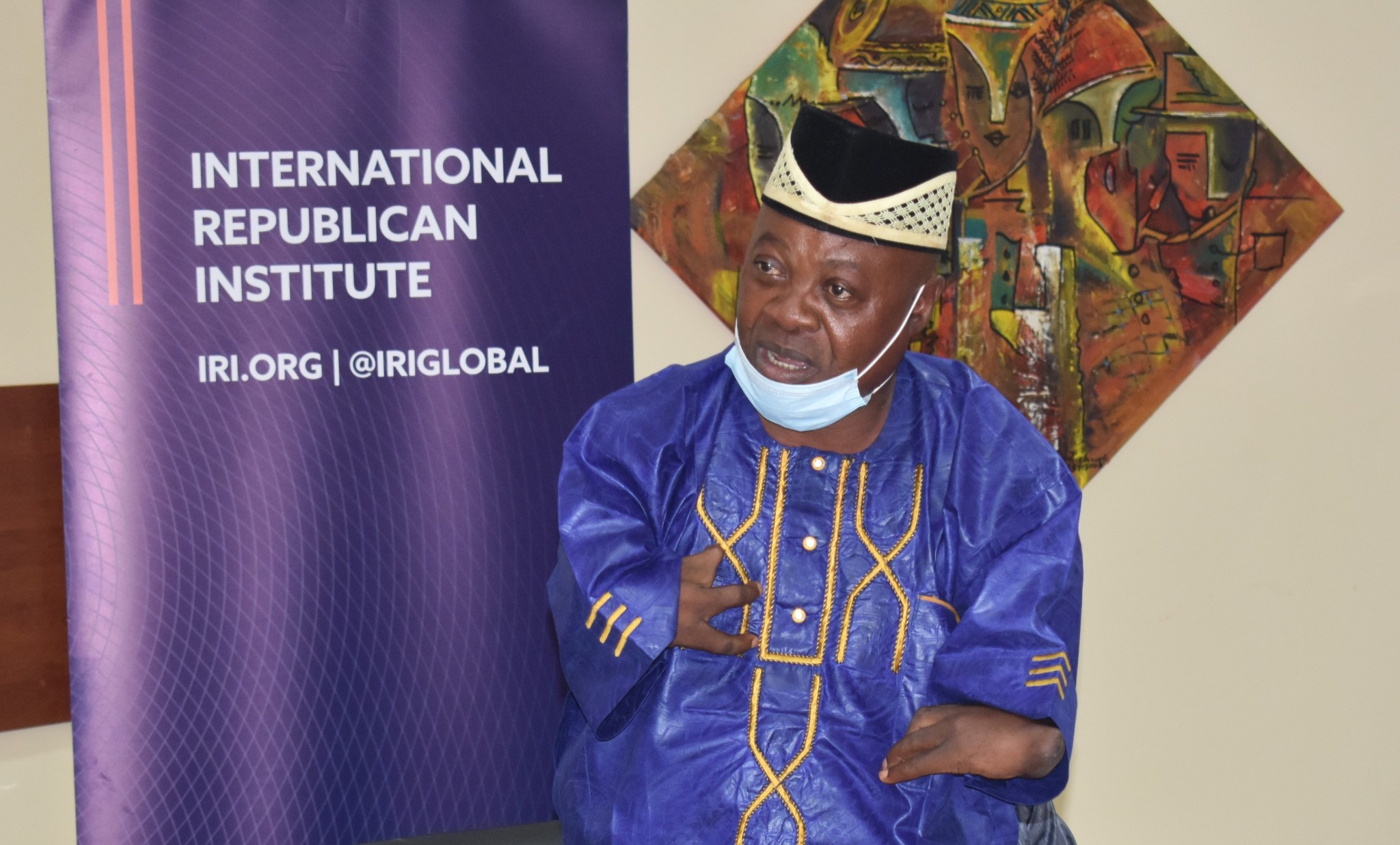Political Inclusion of Persons with Disabilities: Reflecting on What Works

Shifting sociopolitical norms and creating space for historically marginalized people to fill leadership roles in their communities is no small task. This holds true for persons with disabilities (PWD), who often face systemic, enduring exclusion and discrimination. IRI has supported active engagement of PWD in political and civic life in more than a dozen countries. In 2021, we took the time to reflect on what makes an effective, successful program focused on building political inclusion through holding an Institute-wide reflection session, as well as targeted discussions about our disability work with IRI’s political inclusion experts and relevant program teams. Taking this time to reflect and learn has showcased that relying on four key political inclusion principles through democracy, human rights, and governance (DRG) interventions can advance the cause of disability activists globally. The foundational principles that should inform this work include:
- “Nothing About Us Without Us”: This principle is essential to bringing about transformative change, as it prioritizes the lived experience of local partners that represent and come from marginalized groups. With diverse types of disabilities and varying priorities among these communities, in addition to social norms that often exclude members of the PWD community from the conversation, it is necessary to seek meaningful input from partners throughout the program to ensure interventions are both accessible and relevant. This can be seen through IRI’s USAID-funded CEPPS program in Guyana, where IRI sought early and ongoing input from its local disabled persons organization (DPO) partner and ensured that members of the disability community played leadership roles in all disability awareness-raising activities.
- “Do No Harm”:Interventions must be anchored in the principle of “Do No Harm,” which necessitates understanding how the program is affecting diverse groups of participants, particularly those who have been traditionally marginalized, in order to avoid inadvertent harm to the populations with whom we work. Applying this principle to programs focused on building disability inclusion requires a rights-based approach that empowers PWD to engage in political life. IRI has applied this principle through our CEPPS program in the Maldives by disaggregating indicator data by disability status to better understand the extent to which participants with disabilities are achieving intended outcomes following IRI support.
- Intersectional Approaches: PWD are represented across all historically marginalized communities. Programs should take an intersectional approach because effective programming must recognize and respond to the ways in which social categorizations interact to create overlapping, interdependent systems of privilege or marginalization. For instance, IRI has done this through its CEPPS Mexico project, where our local DPO partner led a wide-reaching campaign to expand citizens’ awareness of the specific barriers women with disabilities face in Mexico.
- Engage Across Sectors: A conscious effort must be made to include cross-sectoral elements in programming where feasible, as building more equitable, inclusive societies requires going beyond DRG programming. For example, IRI’s CEPPS programs in Tanzania and Uganda partnered with local civil society and political parties to advance access to education and social inclusion for PWD, recognizing that political engagement cannot happen without progress on these fronts.
Applying Targeted and Mainstreamed Approaches
Beyond applying these four principles in our programming, IRI has witnessed the value of the complementary role two foundational program approaches play in developing sustainable, transformational change in PWD political inclusion:
- Targeted Programming: A targeted, or standalone, approach specifically works with PWD to build the skills and confidence to represent their rights and needs within political processes, as well as opportunities to connect and collaborate with one another on priority issues.
- Mainstreamed Programming: A mainstreaming approach focuses on integrating PWD into all aspects of program implementation, which can also play an important role in shifting social and political norms around why the inclusion of persons with disabilities matters.
Discussions with our country teams who are responsible for implementing disability inclusion programs highlighted that each approach plays a valuable role in achieving desired program outcomes, as well as shifting political and cultural norms. Examples of what this looks like in practice at IRI can be seen in our CEPPS programs in Nigeria and Jordan.
…
Top